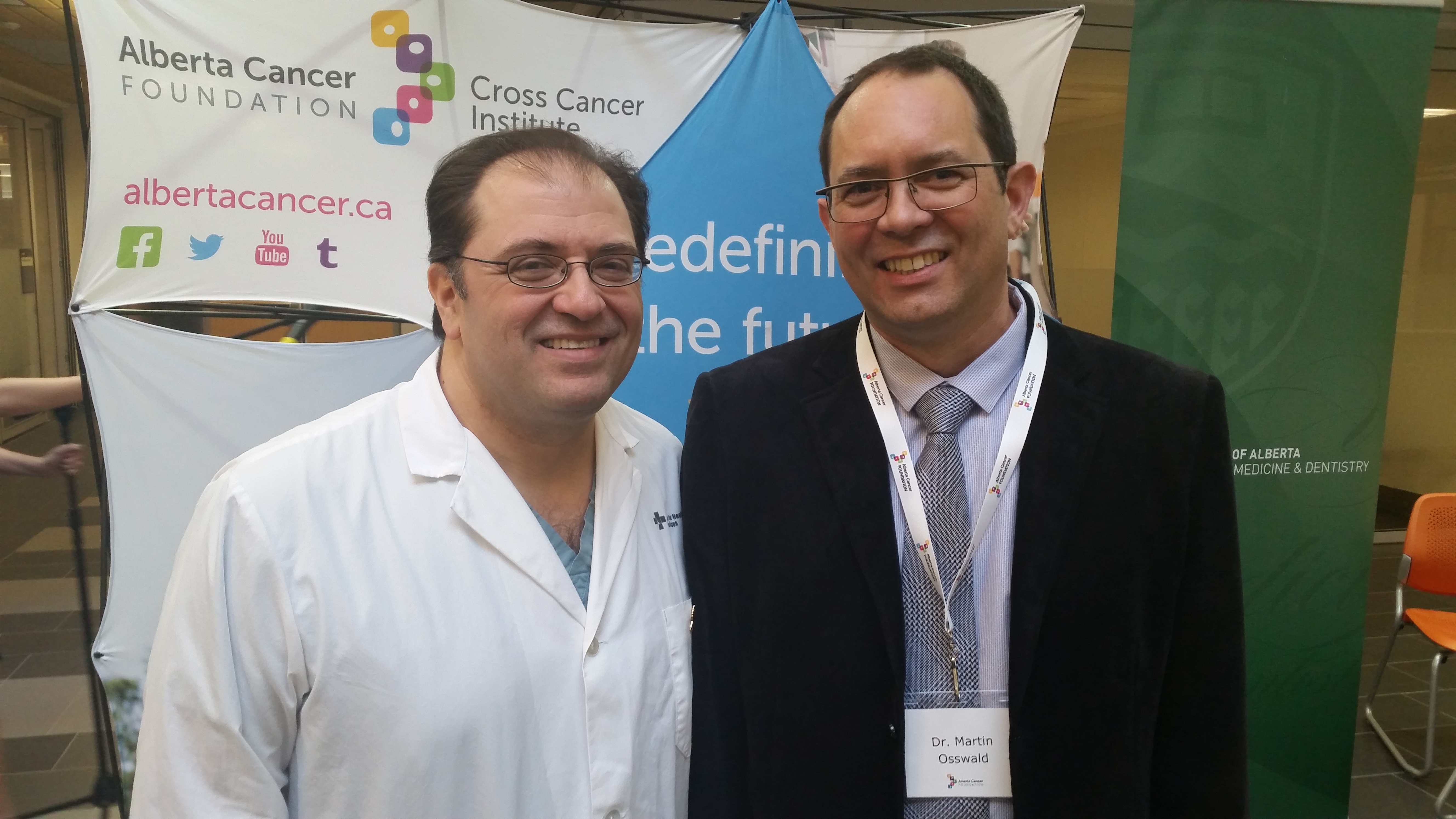
Hadi Seikaly and Martin Osswald
After life-saving surgery for head and neck cancer, the physical alterations to a patient's skull or face can be devastating. But thanks to the legacy of an Edmonton surgeon, new research will help restore those patient's quality of life.
Martin Osswald, an assistant professor in the Faculty of Medicine & Dentistry's Department of Surgery, and Hadi Seikaly, a professor in the Department of Surgery, are the first recipients of the Murray E. Mickleborough Interfacial Biomechanics Research Program. The researchers will receive a total of $150,000 each over the next two years to fund their research projects.
"I think it's exactly what Murray, who donated the money, would have wanted to happen," says Seikaly. "He was really interested in how patients function after their surgery and treatment and how their quality of life would be improved with certain treatments."
The Mickleborough Research Program came about thanks to Murray Mickleborough, a renowned local maxillofacial surgeon. In 2010 he was diagnosed with cancer of the jaw, the very type of cancer treatment he specialized in for decades. Before he died in 2011, he made a $1 million donation to the Alberta Cancer Foundation to help find ways to improve quality-of-life outcomes for patients facing head and neck cancer. His gift led to a unique partnership between the Institute for Reconstructive Sciences of Medicine, the University of Alberta, the Alberta Cancer Foundation and the Caritas Hospitals Foundation.
"Murray was about making things happen, in his professional life and his personal life," says Ross Porter, Mickleborough's son in law. "We're really excited this is happening, and that there's an opportunity to make an impact in patients' lives through the research that Drs. Seikaly and Osswald will be undertaking."
Their two research projects aim to give head and neck cancer patients more information and treatment options. The first, led by Osswald, is a study that will help a team of U of A researchers regenerate a specific type of nasal cartilage that frequently needs to be removed following cancer treatment. Osswald and his team hope to tissue engineer this cartilage in the lab, using the patient's existing stem cells as well as special scaffolding that has been 3D printed for the occasion. In addition to saving patients another surgery, the tissue can be precisely customized ahead of time according to the individual patient's needs.
"I'm extremely honoured to have been chosen. We had an idea and it's just been made possible," says Osswald. "Through this grant we're hoping to establish something really unique in Alberta. We have been able to bring a group of people together with a common goal in sight, which is helping our patients, and we've been given an opportunity to do some hopefully groundbreaking research."
The second project, led by Seikaly, will establish an international head and neck cancer research network. The network, with participating centres in Edmonton, New York City and Turku, Finland, will allow doctors to better track quality of life outcomes from various methods of treatment and give patients the ability to choose between them with more certainty. Currently, there is a lack of data from which to make reliable predictions about a patient's outcome after treatment.
"There is no way we can do this type of work without our wonderful donors," says Seikaly, who briefly knew Mickleborough before his death and acted as his surgeon. "What they get back is an institution that is at the cutting edge. They get the best treatment, the best research and the best outcomes."
That, the two researcher say, is a fitting legacy for Mickleborough-one they hope will improve the lives of all head and neck cancer patients in years to come.